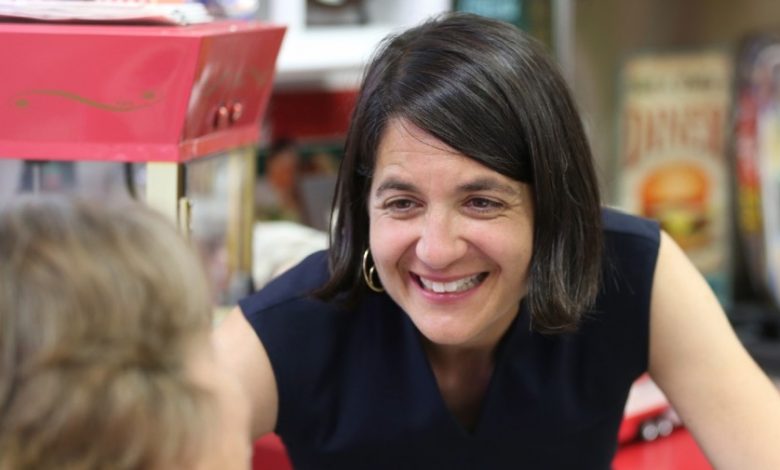Balint poised to become Vermont’s first woman in Congress after primary win

Becca Balint, the leader of Vermont’s Senate, is poised to become the state’s first woman in Congress after she was projected to have beat out Lt. Gov. Molly Gray in the Democratic primary for the state’s at-large House seat on Tuesday.
The Associated Press called the race at 8:47 p.m. ET.
“We proved them wrong. I was the long shot. I was the underdog,” Balint told her supporters at an election night party, according to Seven Days. “But this campaign wasn’t built on connections. It was built on relationships.”
Gray issued a statement conceding at about 8:40 p.m.
“I can say that while my disappointment is profound, so too is my gratitude for this opportunity,” she said. “This was a tough race with deeply qualified candidates making their case to Vermonters.”
Balint, who would also be Vermont’s first openly gay representative in Washington, D.C., will head into November’s election heavily favored.
Sen. Patrick Leahy (D) shook up Vermont’s political landscape in November with the announcement of his retirement, clearing the way for Rep. Peter Welch (D) to run for his Senate seat, creating a rare opening in the state’s federal delegation. Leahy said he voted for Gray in the House primary, though did not explicitly endorse her.
Vermont is the last state to have never sent a woman to Congress.
Balint, 54, who was first elected to the state Senate in 2014 and has been the chamber’s president pro tem since 2020, was the more liberal of the two leading candidates for Welch’s seat, winning the endorsement of Sen. Bernie Sanders (I-Vt.).
“I know — and Vermonters know — @BeccaBalintVT does the work,” Sanders tweeted Tuesday night. “She is the kind of person we need in Washington to tackle the countless crises we face, from the existential threat of climate change to affordable housing and health care.”
While Balint has opposed calls to defund the police, she has supported proposals to end qualified immunity for police and decriminalize possession of small amounts of drugs. Gray, a former prosecutor, has backed a more moderate approach to the issues.
Gray, 38, emerged as a rising star in Democratic politics with her victory in the 2020 lieutenant governor’s race, having previously served as an assistant attorney general following a career as an international human rights lawyer.
However, Balint has been far ahead of Gray in the two polls taken in recent months and outpaced Gray in fundraising in the home stretch of their campaigns.
A Data for Progress poll released last week showed Balint leading Gray by a 32-point margin, with a 5-point margin of error.
Both candidates raised more than $1 million in donations; however, Balint more than doubled Gray’s fundraising haul between July 1 and July 20, raking in almost $150,000.
Gray accused Balint of using “red-boxing” on her website to convey messages to political action committees, which candidates are barred from communicating with. And she attacked Balint after national PACs — including the LGBTQ Victory Fund Federal PAC and Congressional Progressive Caucus PAC — spent more than $600,000 backing the Senate leader’s campaign.
“The lieutenant governor has made clear that she believes Vermonters should decide the election, and no one else,” Gray’s campaign manager told Seven Days last month. “Vermonters will tell us how they feel about this interference in 15 days’ time.”
Balint touted her experience in the Statehouse, and Gray’s relative lack of it, throughout the campaign.
In their final debate on Thursday, Balint closed by saying, “In this moment, when our democracy is at risk, I think it’s critical that we send someone to Congress who has actual legislative experience and has built coalitions of Republicans, Democrats, progressives and independents,” according to VTDigger.



